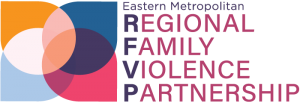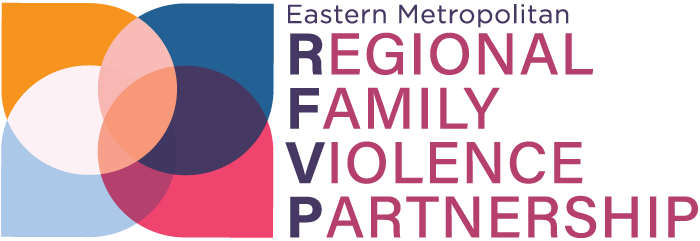All people and communities are free from family violence and have freedom and choice over their lives
The Disability Inclusion and Safety Resource Hub has been developed for organisations and practitioners who are working with people with disability who are experiencing or using family violence.
The Resource Hub provides ready access to important resources that promote safety, accessibility, equity and inclusion of people with disability which can aid in reducing barriers and increasing safety. Resources are relevant to Organisational Leaders, Specialist Family Violence and Sexual Assault Practitioners, Disability Services, Health, Family Support, Education and others.
Family violence for LGBTIQA+ adults and young people with disability occurs at a significantly higher rate than for those within the LGBTIQA+ community without disability. For LGBTIQA+ people with disability, experiences of family violence can be more extreme, more sustained, and likely to include multiple perpetrators across their lifetime. LGBTIQA+ people with disability may experience family violence from an intimate partner, a parent, paid or unpaid caregiver, service provider, co-resident, or any person they consider to be in a ‘family like relationship’ with. Family violence may occur within multiple settings including their home or an alternative home-like setting, within a service or medical setting.
About this resource: Get the Go-Ahead is a collection of resources about affirmative consent, sexual and
reproductive rights, and prevention of gendered violence for Disabled young adults. Aimed at
Disabled people and those who work with or support us, these resources have been
codesigned and coproduced by a Disabled Young Experts group with support from Women’s
Health East and Youth Disability Advocacy Service. Get the Go-ahead includes videos and
booklets offered in a range of accessible formats including Audio-visual, Auslan and
Opendyslexia.
Applying this resource: Young people with disability, professionals and educators.
About this resource: Thorne Harbour Health can provide specific support for people experiencing FV from the Rainbow Community. Thorne Harbour Health also have resources and information for LGBTIQA+ community wanting information on the NDIS.
Applying this resource: For specialist family violence and sexual assault organisations and practitioners and people from LGBTIQA+ community.
About this resource: A guide for communications and engagement to support primary prevention of family violence experienced by LGBTIQ communities.
Applying this resource: For specialist family violence and sexual assault organisations and practitioners and people from LGBTIQA+ community.
About this resource: Opening Doors: Ensuring LGBTIQ-inclusive family, domestic and sexual violence services (Opening Doors) details findings from a multi-phase, mixed method study that considers how to improve family, domestic and sexual violence (FDSV) service accessibility and safety for lesbian, gay, bisexual,
trans and gender diverse, intersex and queer (LGBTIQ+) people in Australia.
Applying this resource: For specialist family violence and sexual assault organisations and practitioners and people from LGBTIQA+ community.
About this resource: A comprehensive suite of information and accessible resources to assist services who are supporting people who are experiencing family violence.
Applying this resource: For people with disabilities and practitioners.
About this resource: Family violence is a pattern of behaviors used to gain or maintain power and control.
The Power and Control Wheel was created by the Domestic Abuse Intervention Project in Duluth, MN, and serves as a diagram of tactics that an abusive partner uses to keep their victim in a relationship.
The Power and Control Wheel diagram assumes she/her pronouns for survivors and he/him pronouns for partners. However, the abusive behavior it details can happen to people of any gender or sexuality.
The inside of the wheel makes up subtle, continual behaviors over time, while the outer ring represents physical and sexual violence. Thus, abusive actions like those depicted in the outer ring reinforce the regular use of other, more subtle methods found in the inner ring. For more information about tactics outlined in the Wheel of Violence and their meaning see link below:
https://www.theduluthmodel.org/wheels/understanding-power-control-wheel/
The Power and Control Wheel has been adapted to outline abusive behaviours for different people with intersectional identities and experiences including intimate partner violence within LGBTIQA+ relationships.
https://www.loveisrespect.org/lir-files/LGBT-Power-and-Control-Wheel.pdf
Applying this resource: For practitioners and people experiencing family violence.
About this resource: ReVisioning is a group for gay, bisexual or queen men (including cisgender or trans men) can learn about breaking patterns of violence, abusive or controlling behaviours.
Applying this resource: For practitioners working with persons using violence from LGBTIQA+ community.
About this resource: There are a significant number of Autistic people who also belong to the LGBTIQA+ community, an intersection that is reflected in formal research, rich anecdotal evidence from around the world and from the lived experience. The I Can Network has developed resources for young people, family members and professionals and services to assist in meaningful inclusion and engagement of LGBTIQA+ young people who are Autistic.
Applying this resource: For practitioners to utilise in practice with Neurodivergent LGBTIQA+ young people and families they are supporting. Professional development is also available.
About this resource: A website for LGBTIQA+ people with disability, co-designed with LGBTIQA+ people with intellectual disability. It contains accessible booklets, fact sheets, videos, posters and more.
Applying this resource: For people with disability and practitioners.
About this resource: Black Rainbow is a national volunteer Aboriginal and Torres Strait Islander LGBQTIA+SB social enterprise to pursue positive health and wellbeing of the Aboriginal and Torres Strait Islander
LGBQTIA+SB community located in the Top End capital, Darwin, Northern Territory.
On the Black Rainbow Website, access the Aboriginal and Torres Strait Islander LGBTIQASB+ Mental
Health and Wellbeing Report which explores Trauma; Racism; Discrimination; and Violence; and
connection to Culture, Community and Country as significant factors impacting Aboriginal and Torres
Strait Islander LGBTIQASB+ people’s social, emotional and cultural wellbeing.
Applying this resource: For specialist family violence and sexual assault organisations and practitioners and people
from LGBTIQA+ community
About this resource: Many people with intellectual disability have experienced breaches of their bodily autonomy and privacy and/or practices which restrict or deny their sexual or gender identity. Research indicates people with intellectual disability experience higher rates of violence and abuse including sexual assault. These rates are higher again for women with intellectual disability.
Having access to information regarding healthy relationships and safe sex practices in ways that is accessible vital to empower people with intellectual disability to have healthy relationships and be safer from harm.
Applying this resource: For people with disability and practitioners.
About this resource: Created alongside people with disability, this resource provides information to LGBTIQA+ people with disability about their rights to express their sexual or gender identity and feel safe in their communities.
Applying this resource: For people with disability and practitioners.
About this resource: A critical assessment tool for ensuring that resources being created or provided are accessible and useable for LGBTIQA+ people with intellectual disability.
Applying this resource: For organisations and practitioners.
About this resource: An accessible resource to assist LGBTIQA+ people with intellectual disability to connect to other people and their community.
Applying this resource: For people with disability and practitioners.
About this resource: An accessible resource that provides information about LGBTIQA+ identity, experiences, sexuality, gender and bodies for people with intellectual disability and their supporters.
Applying this resource: For people with disability and practitioners.
About this resource: Neve’s purpose is to support women, girls and gender-diverse people with disabilities to be safe and
to live full and pleasurable lives. It addresses the fact that many people in our community experience
violence and abuse. It also focuses on wellbeing, like learning to love yourself and saying no and
setting boundaries.
Applying this resource: For LGBTIQA+ women, girls and gender diverse people with disability and practitioners.
About this resource: A glossary of LGBTIQA+ Multilingual Terminology translated into community languages including
English, Arabic, Chinese (simplified), Chinese (traditional), Korean, Spanish, Thai and Vetnamese.
Applying this resource: For translators, interpreters, LGBTIQA+ community members and allies.
About this resource: The NDIA has written a strategy with LGBTIQA+ people for LGBTIQA+ people outlining the NDIA’s commitment to ensure LGBTIQA+ people are treated with respect when talking with the NDIA. This is an accessible resource for people with disability that provides a summary of the Strategy in an Easy
English format.
Applying this resource: For people with disability and practitioners.
About this resource: LGBTIQ+ Liaison Officers are positioned state-wide. The program aims to providing a policing service that is fair, equal and accessible to all. You can ask for an LLO to provide discrete, non-
judgmental advice and assistance when accessing policing services. LLOs receive specific training to identify and respond to prejudice motivated crimes and incidents, ranging from homophobic, biphobic or transphobic slurs and taunts through to serious crimes such as physical assault against LGBTIQ+ community members.
Applying this resource: For LGBTIQA+ community and practitioners.
About this resource: Developed by South East Centre Against Sexual Assault, this resource provides information about LFBTIQA+ Family Violence and contact information about support services.
Applying this resource: For LGBTIQA+ community and practitioners.


All people and communities are free from family violence and have freedom and choice over their lives
![]()
Subscribe today to the RFVP Newsletter by filling out your details below.
Copyright RFVP 2025, All rights reserved
Website designed by 2dog creative
